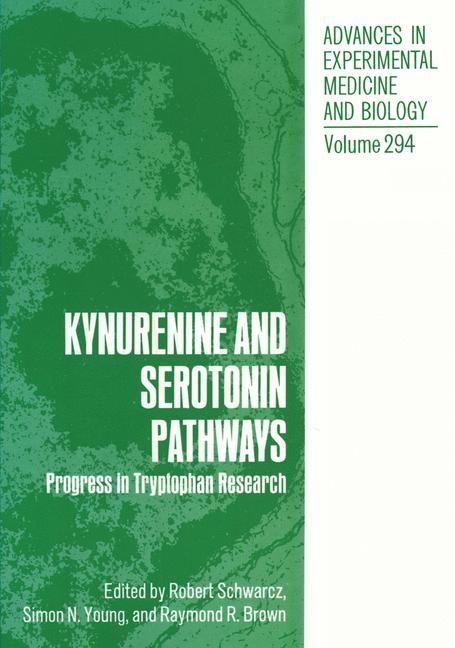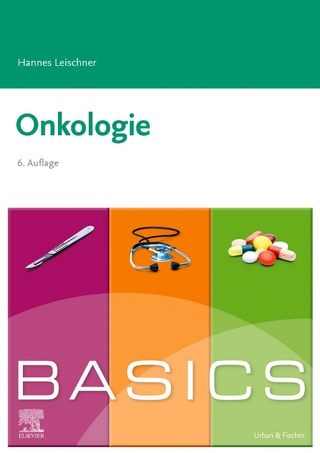
Kynurenine and Serotonin Pathways
Kluwer Academic/Plenum Publishers (Verlag)
978-0-306-43929-2 (ISBN)
- Titel ist leider vergriffen;
keine Neuauflage - Artikel merken
The 6th triennial meeting of the International Study Group for Tryp- tophan Research (ISTRY) was held May 9-12, 1989 in Baltimore, Maryland (USA). From the wide variety of topics and disciplines represented, as documented in this volume, it is clear that tryptophan research and ISTRY are alive and well. ISTRY traces its or1g1ns to at a tryptophan symposium organized in 1971 by H. Schievelbein at Hohenried near Munich (Germany). Up to that time there had been occasional international tryptophan conferences at irregular inter- vals. A number of participants at the Hohenried meeting felt that an inter- national tryptophan organization should be formed to organize regular meet- ings and to foster collaboration and information exchange on tryptophan-re- lated topics. Thanks mainly to the founding work of H. Schievelbein and W. Kochen, an executive committee was elected and ISTRY was born. The inaugural meeting in 1974 was held in Padova (Italy) to honor L. Musajo, one of the foremost pioneers in tryptophan studies. This first ISTRY meeting was suc- cessfully organized by L. Musajo, G. Allegri, A. De Antoni, and C.
Costa, and was critical in assuring the viability of the new organization. Subsequent meetings were held in 1977 in Madison, Wisconsin (USA), organized by R.R. Brown, D.P. Rose, and W.E. Knox, honoring C.P. Berg; 1980 in Kyoto (Japan), organized by O. Hayaishi, R. Kido, Y. Ishimura, T. Deguchi, T. Hino, T.
Session I. Tryptophan and its Metabolites: Chemical and Analytical Issues.- Retro-, Intro- and Perspectives of Trypto-Fun.- Tryptophan and Related Alkaloids.- Stability of Tryptophan in Peptides Against Oxidation and Irradiation.- Mass Spectrometric Determinations of Tryptophan and its Metabolites.- Signal-to-Noise Optimization of HPLC-Fluorometric Systems and their Application to the Analysis of Indoles.- Brain Indole Metabolism Assessed Using in vivo Dialysis.- Sub-Picogram Determination of Serotonin Using HPLC with Electrochemical Detection for Microdialysis Studies of Serotonin Release.- Session II. Tryptophan Metabolism: Serotonin and Melatonin.- Autoradiographic Measurement of the Rate of Serotonin Synthesis in the Rat Brain.- Autoradiographic Studies of 5HT2 Receptors.- Ambivalence on the Multiplicity of Mammalian Aromatic L-Amino Acid Decarboxylase.- Interrationships of DNA Cycles and Melatonin Synthesis.- Regulation of Melatonin Synthesis in the Ovine Pineal Gland.- Melatonin Synthesis: Multiplicity of Regulation.- Session III. Tryptophan Metabolism: Kynurenines.- The Role of Tryptophan and Kynurenine Transport in the Catabolism of Tryptophan Through Indoleamine 2,3-Dioxygenase.- Kynureninase and Kynurenine 3-Hydroxylase in Mammalian Tissues.- Relationships Between Pteridine Synthesis and Tryptophan Degradation.- Quinolinic acid and Kynurenic acid in the Mammalian Brain.- Kynurenate Forming Enzymes in Liver, Kidney and Brain.- Regulation of Pyridine Nucleotide Coenzyme Metabolism.- Session IV. Biological Effects: Serotonin and Melatonin.- Serotonin: Its Role and Receptors in Enteric Neurotransmission.- Mechanisms of Serotonergic Affect Control.- Neuroendocrine Responses to L-Tryptophan as an Index of Brain Serotonin Function: Effect of Weight Loss.- Melatonin Receptors in the Central Nervous System.- Melatonin Interaction With the Benzodiazepine-GABA Receptor Complex in the CNS.- Session V. Biological Effects: Tryptophan and Kynurenines.- Effects of Tryptophan 2,3-Dioxygenase Inhibitors in the Rat.- Bidirectional Relationships Between Tryptophan and Social Behavior in Vervet Monkeys.- The Regulation of Brain Kynurenic Acid Content: Focus on Indole-3-Pyruvic Acid.- Physiological Role of 3-Hydroxykynurenine and Xanthurenic Acid Upon Crustacean Molting.- Kynurenines in the Regulation of Behavior in Insects.- Effects of Quinolinic and Kynurenic Acids on Central Neurons.- Behavioral Abnormalities in Rats After Single Treatment with Quinolinic Acid During Early Ontogenesis.- Tryptophan Nutrition and Metabolism: An Overview.- Comparison of Tryptophan Metabolism In Vivo and in Isolated Hepatocytes from Vitamin B6 Deficient Mice.- Effects of the Diet and other Metabolic Phenomena on Brain Tryptophan Uptake and Serotonin Synthesis.- Effects of Tryptophan and of 5-Hydroxytryptamine Receptor Subtype Agonists of Feeding.- The Role of Serotonin (5-HT) in Feeding Responses to Amino Acids.- Session VII. Clinical Aspects.- Cardiovascular and Endocrine Properties of L-Tryptophan in Combination With Various Diets.- Acute Effects of Meals on Brain Tryptophan and Serotonin in Humans.- Implications of Interferon-induced Tryptophan Catabolism in Cancer, Autoimmune Diseases and AIDS.- Induction of Indoleamine 2,3-Dioxygenase in Tumor Cells Transplanted into Allogeneic Mouse: Interferon-? is the Inducer.- Short Communications.- Plasma Free 5HT, Plasma 5HIAA and Whole Blood 5HT in the Rat.- Effects of Clomipramine on Extracellular Serotonin in the Rat Frontal Cortex.- Tryptophan Metabolism in Senile Cataract Assessed Patients by High-Performance Liquid Chromatography.- The Effect of Aluminum on Rat Brain and Liver Quinolinic Acid Concentrations.- Kynurenine and Lipid Metabolism.- Content of Tryptophan in Human Hair.- Detection of a New Intermediate Product of Indolealkylamine Metabolism in the Brain.- The Excretion of N1-Methyl-2-pyridone-5-carboxylic Acid and Related Compounds in Human Subjects After Oral Administration of Nicotinic Acid, Trigonalline and N1-Methyl-a-pyridone-5-carboxylic Acid.- Stable Isotope-Labeled Tryptophan as a Precursor for Studying the Disposition of Quinolinic Acid in Rabbits.- Evidence for the Preferential Production of 3-Hydroxyanthranilic Acid from Anthranilic Acid in the Rat Brain.- Chronobiological Effects of L-Tryptophan in Humans: Influence on Melatonin Secretion.- Circadian Patterns of Salivary Melatonin and Urinary 6-Sulfatoxy-melatonin Before and After a 9-hour Time-shift.- Tryptophan Metabolism in Mice Infected with Schistosoma Mansoni.- Inhibition of Tryptophan ? Niacin Metabolism by Dietary Leucine and by Leucine and 2-Oxo-isocaproate in vitro.- Induction of Indoleamine 2,3-Dioxygenase in Human Cells in vitro.- Differential Effects of Estradiol and Hydrocortisone on Liver Tryptophan Pyrrolase in Rats of Various Ages.- Indole-3-Pyruvic Acid as a Direct Precursor of Kynurenic Acid.- Tryptophan Metabolism in Healthy Subjects: Influence of Pyridoxine after Single or Repeated Administrations.- On Kynureninase Activity.- Rat Skin Tryptophan 2,3-Dioxygenase.- Kynurenine 3-Monooxygenase Activity of Rat Brain Mitochondria Determined by High Performance Liquid Chromatography with Electrochemical Detection.- Indolic and Kynurenine Pathway Metabolites of Tryptophan in Rat Brain: Effect of Precursor Availability on in vivo Release.- Kinetic Properties of Human Liver Tryptophan Pyrrolase.- Interferon Type I and II Antagonism: A Novel Regulatory Mechanism of Indoleamine Dioxygenase Induction in Human Peripheral Blood Monocytes and Peritoneal Macrophages.- Quinolinic Acid Concentrations Are Increased in Cerebrospinal Fluid of Rhesus Macaques (Macaca Mulatta) Naturally Infected with Simian Retrovirus Type.- Increased L-Tryptophan, 5-Hydroxyindoleacetic Acid, 3-Hydroxykynurenine and Quinolinic Acid Concentrations in Cerebral Cortex Following Systemic Endotoxin Administration.- Non-Competitive Inhibition of 3-Hydroxyanthranilate-3,4-dioxygenase by 4-Chloro-3-hydroxyanthranilic Acid in Whole Brain of Rat.- Kynurenine-Pyruvate Aminotransferase in Rat Kidney and Brain.- Enzymatic Synthesis of Papiliochrome II.- 4-Halo-3-Hydroxyanthranilates are Potent Inhibitors of 3-Hydroxyanthranilate Oxygenase in the Rat Brain in vitro and in vivo.- On the Disposition of de novo Synthesized Quinolinic Acid in Rat Brain Tissue.- Brain-specific Control of Kynurenic Acid Production by Depolarizing Agents.- Effects of 5-Hydroxytryptophan on Eating Behavior and Adherence to Dietary Prescriptions in Obese Adult Subjects.- The Involvement of Bulbospinal Serotonergic Neurons in the Effect of 5-Hydroxytryptophan on Alpha and Gamma Motoneurons.- Quinolinic Acid-Induced Decreases in Acetylcholine Release in the Rat Nucleus Basalis Magnocellularis.- The Role of Transaminations in Pharmacological Effects of Indole-3-Pyruvic Acid.- Endocrine Response of Prolactin, Cortisol, and Growth Hormone to Low Dose Intravenous L-Tryptophan in Healthy Subjects During Day and Night.- Specific Binding of L-Tryptophan to Serum Albumin and its Function in vivo.- Effects of L-Tryptophan on the Brainstem Indole and Catecholamine Metabolites in Spontaneously Hypertensive Rats.- Effects of Tryptophan on the Development of Deoxycorticosterone Acetate (DOCA)-induced Hypertension in Rats.- Cytotoxicity of 3-Hydroxykynurenine: Implications for CNS Damage in Neonatal Vitamin B-6 Deficiency.- Pellagra, Mycotoxins, and Tryptophan-niacin Metabolism.- Levels of Non-Proteic Tryptophan in Milk and Soybean Formulas.- Characterization of L-Tryptophan Transport into Liver in Suckling Rats.- Efficiency of Exogenous Quinolinic Acid, a Metabolite of Tryptophan, as a Niacin Precursor in Rats.- Why Does a Difference in Growth Rate Between Rats of the Wistar and Sprague Dawley Strains Occur When a Niacin-free and Tryptophan-limiting Diet is Fed?.- Plasma Free 5HT and Platelet 5HT in Depression: Case-control Studies and the Effect of Antidepressant Therapy.- Kynurenine and Mesangial-Proliferative Glomerulonephritis.- Impairment of Kynurenine Metabolism in Cardiovascular Disease.- Tryptophan and its Metabolites in a Family with Hartnup Disease.- Effect of Huntington’s and Alzheimer’s Diseases on the Transport of Nicotinic Acid or Nicotinamide Across the Human Blood-Brain Barrier.- Effects of Profound Insulin-induced Hypoglycemia on Quinolinic Acid in Hippocampus and Plasma.- Brain and Cerebrospinal Fluid Quinolinic Acid Concentrations in Patients with Intractable Complex Partial Seizures.- Cerebrospinal Fluid Quinolinic Acid Concentrations are Increased in Acquired Immune Deficiency Syndrome.- Production of Quinolinic Acid and Kynurenic Acid by Human Glioma.- Contributors.
| Erscheint lt. Verlag | 30.9.1991 |
|---|---|
| Zusatzinfo | XVII, 715 p. |
| Verlagsort | New York |
| Sprache | englisch |
| Gewicht | 1480 g |
| Themenwelt | Medizin / Pharmazie ► Medizinische Fachgebiete ► Onkologie |
| ISBN-10 | 0-306-43929-8 / 0306439298 |
| ISBN-13 | 978-0-306-43929-2 / 9780306439292 |
| Zustand | Neuware |
| Haben Sie eine Frage zum Produkt? |
aus dem Bereich


